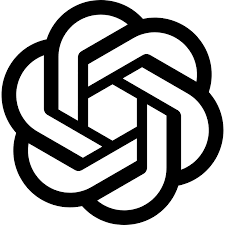In the ever-evolving world of technology, few innovations have captured the public's imagination quite like ChatGPT. Whether you're a tech enthusiast, a business owner, or just someone curious about the future, you've likely heard of this remarkable tool. But what exactly is ChatGPT, how does it work, and how does it stack up against other chat models like Gemini or DeepSeek? In this blog, we'll dive into the details, explore its use cases, and compare it to its competitors—all while unpacking the magic of artificial intelligence.
What is ChatGPT?
ChatGPT is an online chat tool powered by *artificial intelligence* (AI), developed by *OpenAI*, a leading *artificial intelligence company* co-founded by Elon Musk, Sam Altman, and others in 2015. At its core, ChatGPT is built on the *Generative Pre-trained Transformer* (GPT) architecture, a type of machine learning model designed to understand and generate human-like text. This makes it capable of engaging in natural conversations, answering questions, and even completing tasks—all with a level of fluency that feels almost human.
The "pre-trained" part of its name refers to the massive datasets it was trained on, which include books, websites, and other text sources from across the internet. The "generative" aspect means it can create responses from scratch, rather than just parroting pre-written answers. And the "transformer"? That’s the technical wizardry that helps it process language efficiently and contextually.
Since its launch in November 2022, ChatGPT has become a household name, revolutionizing how we interact with AI and setting a high bar for conversational models.
Use Cases of ChatGPT
ChatGPT's versatility is one of its biggest strengths. Here are some of the most compelling ways it’s being used today:
1. Personal Assistance
Need help drafting an email, brainstorming ideas, or organizing your schedule? ChatGPT acts like a virtual assistant, offering quick and reliable support for everyday tasks.
2. Education and Learning
Students and educators use ChatGPT to explain complex topics, generate study guides, or even practice foreign languages. It’s like having a tutor available 24/7.
3. Content Creation
From writing blog posts (like this one!) to crafting social media captions, ChatGPT is a go-to tool for writers and marketers looking to streamline their creative process.
4. Customer Support
Businesses integrate ChatGPT into their websites to provide instant responses to customer inquiries, reducing wait times and improving user satisfaction.
5. Coding and Development
Developers lean on ChatGPT to write code snippets, debug errors, or learn new programming languages—making it a favorite in the tech community.
6. Entertainment
Ever tried asking ChatGPT to write a poem, tell a joke, or role-play as a fictional character? Its ability to entertain is boundless.
These use cases barely scratch the surface. From healthcare to gaming, ChatGPT’s adaptability makes it a game-changer across industries.
ChatGPT vs. Other Chat Models: Gemini, DeepSeek, and More
While ChatGPT has dominated the spotlight, it’s not the only player in the world of conversational AI. Let’s compare it to some notable competitors, including *Gemini* and DeepSeek.
ChatGPT (OpenAI)
- **Strengths**: Exceptional natural language understanding, vast training data, and a user-friendly interface. Regular updates from OpenAI keep it cutting-edge.
- **Weaknesses**: It can sometimes produce biased or inaccurate responses, and its reliance on cloud servers means you need an internet connection to use it.
- **Best For**: General-purpose conversations, creative tasks, and professional applications.
Gemini (Chatbot)
Gemini - Chatbot is Google’s answer to conversational AI, built on its own advanced models and integrated deeply with Google’s ecosystem.
- **Strengths**: Seamless integration with Google Search, Translate, and other services. It excels at pulling real-time information and handling factual queries.
- **Weaknesses**: Less focus on creative writing compared to ChatGPT, and its personality feels more rigid.
- **Best For**: Research, fact-checking, and users already embedded in Google’s tools.
DeepSeek
DeepSeek is an open-source AI model designed for efficiency and customization, appealing to developers and researchers.
- **Strengths**: Highly customizable and resource-efficient, making it ideal for niche applications or running on local hardware.
- **Weaknesses**: Lacks the polish and general accessibility of ChatGPT, with a steeper learning curve for non-technical users.
- Best For: Developers and organizations looking for tailored AI solutions.
Key Differences
- **Training Data**: ChatGPT’s massive dataset gives it an edge in versatility, while Gemini leverages Google’s real-time web access, and DeepSeek prioritizes efficiency over breadth.
- **Accessibility**: ChatGPT and Gemini are more user-friendly for the average person, whereas DeepSeek targets a technical audience.
- **Creativity vs. Accuracy**: ChatGPT shines in creative tasks, Gemini in factual precision, and DeepSeek in specialized applications.
As of March 11, 2025, ChatGPT remains the leader in general-purpose conversational AI, but competitors like Gemini are closing the gap, especially for specific use cases.
The Future of ChatGPT and Conversational AI
ChatGPT isn’t just a tool—it’s a glimpse into the future of artificial intelligence. As OpenAI continues to refine the *Generative Pre-trained Transformer* framework, we can expect even smarter, more context-aware versions in the years ahead. Meanwhile, competitors like *Gemini - Chatbot* and DeepSeek are pushing the boundaries of what AI can achieve, ensuring a vibrant and competitive landscape.
Whether you’re using it to write a blog, solve a problem, or just have a chat, ChatGPT exemplifies how far *online chat* technology has come. It’s not perfect—yet—but it’s undeniably a milestone in the journey of AI.
What’s your favorite way to use ChatGPT? Let me know in the comments—I’d love to hear your thoughts!







Comments
Post a Comment